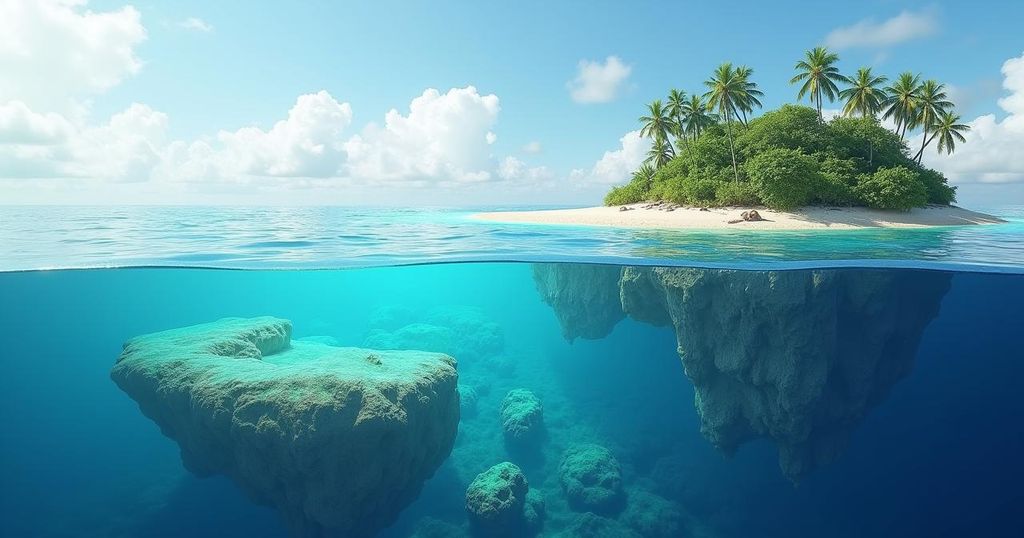U.N. Chief Warns of Rising Seas Threatening Pacific Island Nations
U.N. Secretary-General Antonio Guterres has issued a dire warning concerning the accelerating rise of sea levels that threaten Pacific island nations. During his visit to Tonga, Guterres highlighted the staggering statistics of rising oceans and their impact on local communities, advocating for urgent action to combat climate change. Reports indicate that sea levels in the region are rising at rates significantly above the global average, exacerbating coastal flooding and endangering the livelihoods of those living near the coast. Guterres calls for a moral obligation from industrialized nations to reverse the negative trends responsible for this crisis.
U.N. Secretary-General Antonio Guterres has raised an urgent alarm regarding the accelerating rise of sea levels, particularly affecting the vulnerable Pacific island nations. He emphasized the severity of the situation during his visit to Tonga, amidst a meeting of the Pacific Islands Forum, highlighting that this phenomenon is primarily attributable to human activities, culminating in a climate crisis of unprecedented proportions. Guterres specifically labeled this urgency as an invitation to “save our seas.” Recent reports from the United Nations and the World Meteorological Organization delineate the exacerbating impact of climate change—manifesting not only as rising waters but also through ocean acidification and marine heatwaves. A commissioned report indicated that between 1990 and 2020, sea levels around Tonga’s capital Nuku’alofa had surged by 21 centimeters (8.3 inches), significantly surpassing the global average of 10 centimeters (3.9 inches). Furthermore, Apia in Samoa recorded a rise of 31 centimeters (1 foot), while Suva in Fiji witnessed a 29-centimeter (11.4 inches) increase. The statistics are daunting; around 90% of the population in the Pacific region resides within 5 kilometers (3 miles) of the coastline, rendering them increasingly susceptible to rising sea levels. Instances of coastal flooding have escalated dramatically in the region, with occurrences in Guam rising from twice a year to 22 times annually since 1980, illustrating the urgent need for climate action. Guterres acknowledged the escalating nature of these challenges, contextualized by increases in coastal flooding incidents across various Pacific territories. The WMO confirmed that the western Pacific is experiencing sea levels rising at nearly twice the global average due to regional climatic factors, including oceanic currents and melting ice from Antarctic sources. During his engagements, Guterres was visibly moved by the ongoing climate justice movement, where local youth gathered to advocate for urgent attention to climate change issues. Observations by local activists, such as Itinterunga Rae, highlighted that forced migrations due to climate impacts should not be considered viable solutions, as they further displace communities from their cultural heritage. As the landscape changes faster than expected, experts like S. Jeffress Williams warn that the plight of low-lying Pacific islands necessitates immediate and coordinated global intervention to mitigate the effects of climate change, a phenomenon primarily instigated by extensive greenhouse gas emissions from more industrialized nations. Globally, sea level rise continues to accelerate, now reaching the fastest rate seen in 3,000 years. The UN’s findings reveal a stark increase from 1.3 centimeters per decade between 1901 and 1971 to 4.8 centimeters (1.9 inches) in recent years, underlining a troubling trajectory that demands both urgent action and structural changes in policy among the primary contributors to climate change.
The ongoing crisis of rising sea levels represents a significant and immediate threat to many Pacific island nations, exacerbated by climate change. The foundation of Guterres’ address lies in the intersection of scientific data and the lived experiences of local populations, highlighting how rising temperatures are causing glaciers to melt and oceans to expand. This document underscores the various environmental phenomena that are unfolding due to climate change and the key role that human actions play in exacerbating these challenges. It calls attention to community vulnerabilities, particularly in regions where geographical elevation is minimal, creating a clear rationale for global climate action.
In summary, U.N. Secretary-General Antonio Guterres has emphasized the perilous state of Pacific island nations in light of rising sea levels and broader climate change effects. The urgency of the situation mandates immediate action from global stakeholders, particularly those nations with high greenhouse gas emissions. As the region continues to experience unprecedented sea level rises, bolstered by scientific evidence and local narratives, it becomes clearer that a collective response is essential to safeguard the future of vulnerable communities.
Original Source: www.voanews.com




Post Comment